We use cookies to improve your online experiences. To learn more and choose your cookies options, please refer to our cookie policy.
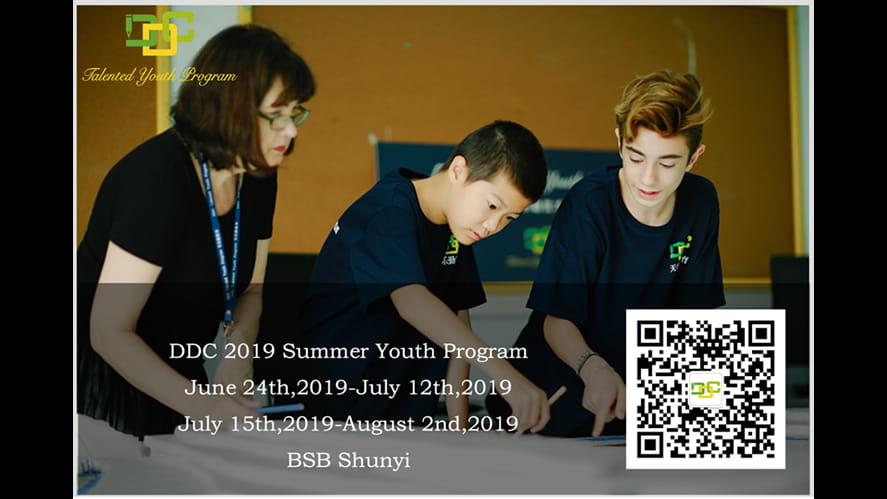
Please see an introduction to the courses below.
Fairy Tales and STEM (Grades 1-2)
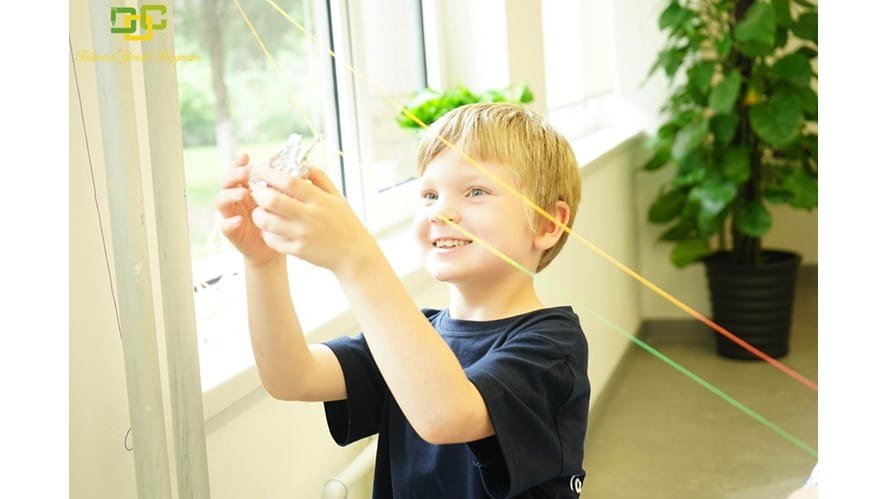
In this fun, engaging, and hands on course the students will read a variety of Fairy Tales and have STEM challenges based on the story. The students will read American and Chinese Fairy Tales. Students will learn about character and plot development. They will also compare and contrast various stories and authors. To aid in our STEM learning; we will use the engineering design process to design and build structures after we read the story. For instance, students will read "Cinderella". After reading the story the students will have to design a carriage that will be able to travel down a ramp for a specified distance. During the challenges, students will use math to discuss weight and distance.
Students will use math concepts to enhance their designs. Some of the math concepts used will be algebra, geometry, fractions, measurement, and weight. Students will also study the structure of Fairy Tales versus other types of fiction. They will take that knowledge and write their own Fairy Tale. They will follow the publishing process and have their very own published Fairy Tale to take home.
Digital Storytelling (Grades 2-3)
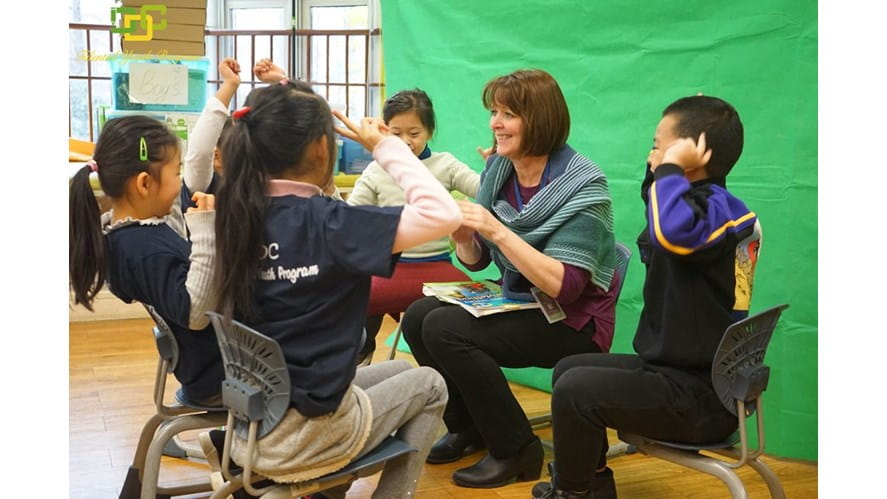
Storytelling is a way of connecting and sharing our experiences with others. We all have stories to tell! When students participate in the story telling process, they learn how to communicate clearly and express themselves creatively for a variety of purposes becoming deep thinkers while building their literacy skills.
In this course, students will learn to use Green Screen technology to digitally create and perform short, personal stories that are told by using still and/or moving images, music and sound. Students become innovative designers and use a deliberate design process for generating ideas, testing theories, creating stories and solving problems. Students create original works or digital resources into new creations. By the end of this course, students’ skills and abilities of listening, speaking, reading and writing, expression, communication, creativity and digital tools application will be immensely enhanced.
Kinetics Sculpture (Grades 3-4)
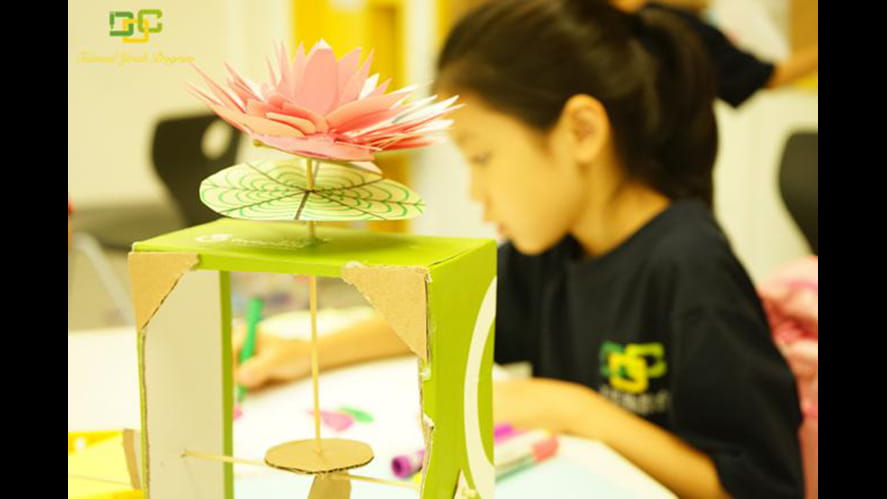
Must sculpture stand still? Famous kinetic sculptures inspire people with art and motion and unleash unlimited imagination. In this course, students will understand the relationship between art, science, and engineering. While learning to appreciate the works of artistic masters such as Calder, Duchamp and Gabo, students will apply the "MIT engineering design process” to create their own kinetic sculpture—works of original art that are not static, single, flat, but dynamic, multi-dimensional works, which will break the traditional school art. They will organically combine the scientific method and architectural art to form a dynamic artistic effect.
Students will understand and learn basic physical concepts such as balance, kinetic and potential energy, gear mechanisms and wind energy in the process of practicing how to transform artistic ideas into original products.
Rocketry (Grades 4-5)
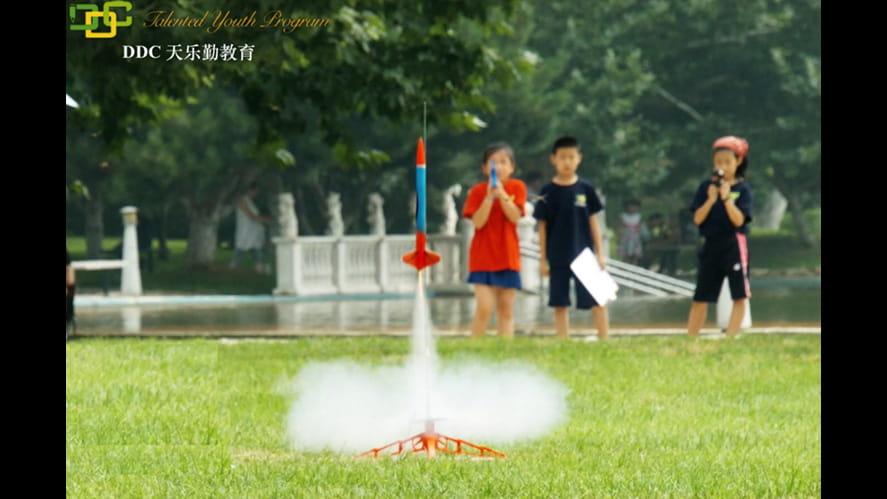
It’s time to blast off! Design, build, and launch different kinds of rockets in this hands-on course! students will build the balloon rocket to explore the law of air thermodynamics, use foam board to build rockets and continue to debug the design model to achieve optimal emission effect. Students will launch the rockets with egg contained and ensure its safe landing. At the same time, students will learn to design and annotate their own "engineering notebook", record their rocket designs and launch progress, as well as a thinking map that shows the progression from the idea, to design, to model, and finally, to the launch pad.
Another focus of the course is the technology involved in rocket separation, electronic circuits, photographic tracking, and delayed deployment of aerospace. Meanwhile, students will work collaboratively to produce a wonderful video to record the complete process of rocket production, installation, launch, and landing.
Artistic Ways of Knowing (Grades 4-5)
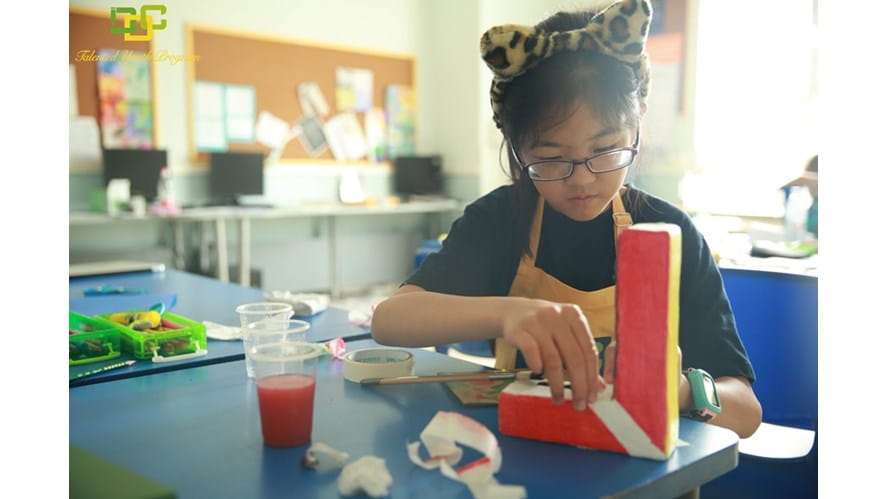
How does an artist think? With aesthetics, with science, with emotion, with mathematics, with design—and with a message to send to the world, In this course, students will learn How to Think Like an Artist, examining the perceptual and cognitive processes inherent in learning and interpretation of art. The course begins with perspectives of artistic and aesthetic knowing from artists and scholars across the fields of artistic endeavor—dance, music, drama, and visual art. Students learn what not only how these are different, but how they are the same. It then explores each element of artistic knowing, which includes “Sparkler Experiences” that provide hands-on experiences to help students realize how to think and perceive from the perspective of the art form.
The goal of this course is to provide students with a more thorough understanding of how artists think and perform and how this kind of knowing expands in depth and breadth of how an individual sees the world. Seeing through an artist’s eyes enriches all experiences both inside and outside the classroom. The ultimate goal is to encourage each student to experience artistic “knowing.” Students will also have the opportunity to enjoy the classic works of art that illustrate aspects of the creative process.
Academic Writing and Vocabulary (Grades 5-6)
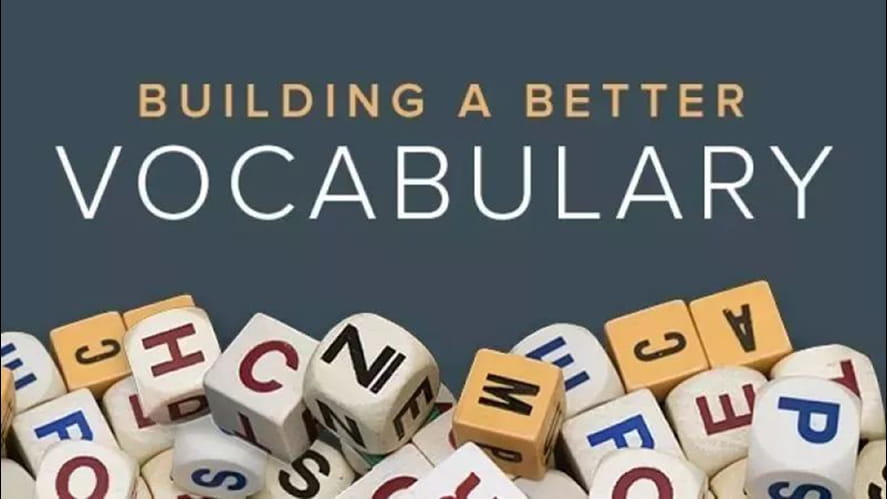
This course explicates the elements of the correct, formal essay—the essay expected for exams, research papers, critical responses, and other formal analyses of academic subjects. With the use of extensive examples and thorough explanation, children see that formal writing involves the correct use of words, sentences, paragraphs, punctuation, and other elements such as organized structure and unity.
The course has a journeying theme that takes readers around the world. Each chapter is followed by exercises, challenging questions, examples of good essays, and a discussion of the correct use of words. It reflects the current MLA guidelines, More than that, Students will go in-depth to the academic vocabulary learning, like roots, affixes, etc.
Genetics Ⅱ (Grades 6-7)
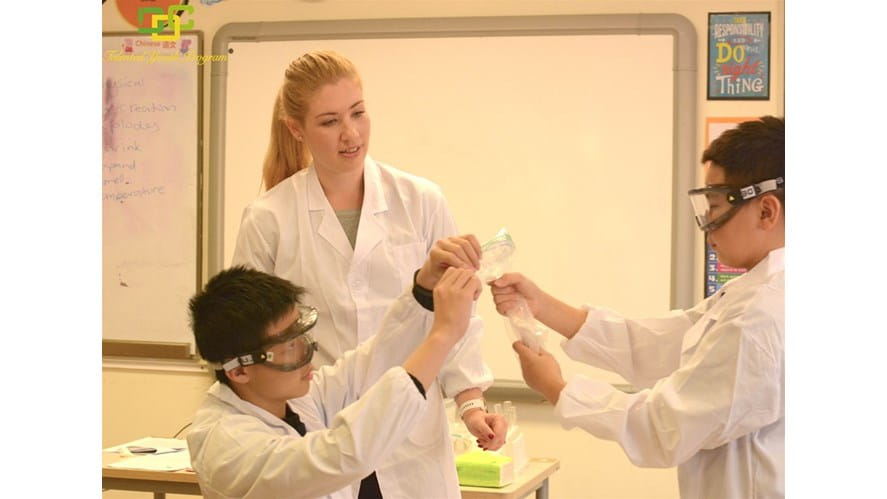
By integrating physical and life science ideas about chemical reactions, Genetics II look into the properties of substances and the production of new substance during chemical reactions, as well as molecular explanation for their production. Students will continue to use LEGO Models designed by MIT, as one of the variety representations of biology concepts, to explore deeper concepts of biology, such as atoms, molecules, and growth in plants and animals. Genetics II draws focus to a more research-based development approach. Students will go through multiple cycles of design and revision based on results from classroom field tests, feedback from teachers, expert scientific input, and criteria-based evaluations.
More importantly, students will learn about the ‘science idea’ behind each phenomenon, where students will generalize science concepts and how the world works based on a wide range of observations and data, then construct an explanation. By the end of the course, students will not only be able to use the representations to communicate what happens during chemical reactions, but also be able to apply a known science prediction to a similar science phenomenon and become a true scientist and a 21st century problem solver.
AMC 8/10 (Grades 7-9)
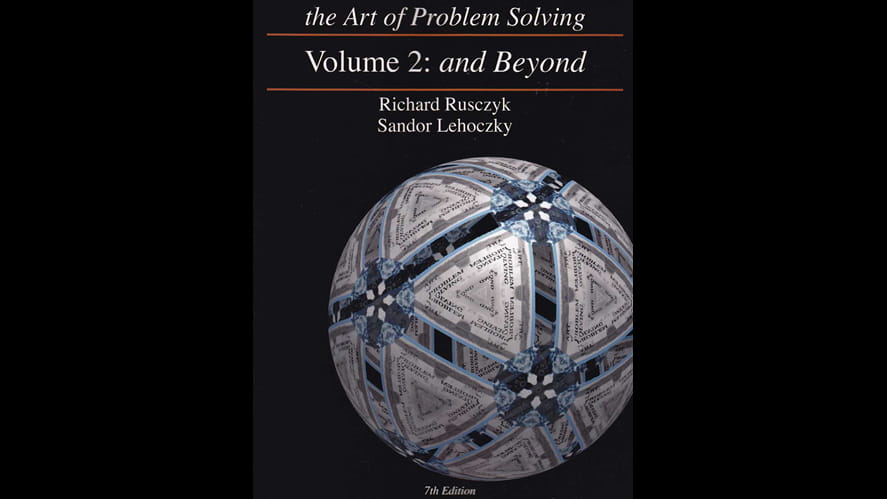
This course is designed to extend advanced skills to foster mathematical creativity and problem-solving strategies in-depth; Prepare students for American Mathematics Competition (AMC 10/12); Topics addressed in this course will include advanced concepts from algebra, geometry, and precalculus through the textbook of ‘ the Art of Problem Solving – Volume 2 and Beyond’. There are timed practice AMC 10 exams that students complete as well to help them prepare for the real exams.
There are five units and twenty-five chapters covering the following topics: Logarithms, Triangles, Cyclic Quadrilaterals, Conics and Polar Coordinates, Polynomials, Functions, Limits, Complex Numbers, Vectors and Matrices, Cross Products and Determinants, Analytic Geometry, Equations and Expressions, Inequalities, Combinatorics, Sequences and Series, Counting, Continued Fractions, Probability, Geometric Constructions, Collinearity and Concurrency, Advanced Geometric Properties, Number Theory, Diophantine Equations, Graph Theory.
The Wizard of Oz (Grades 2-9)
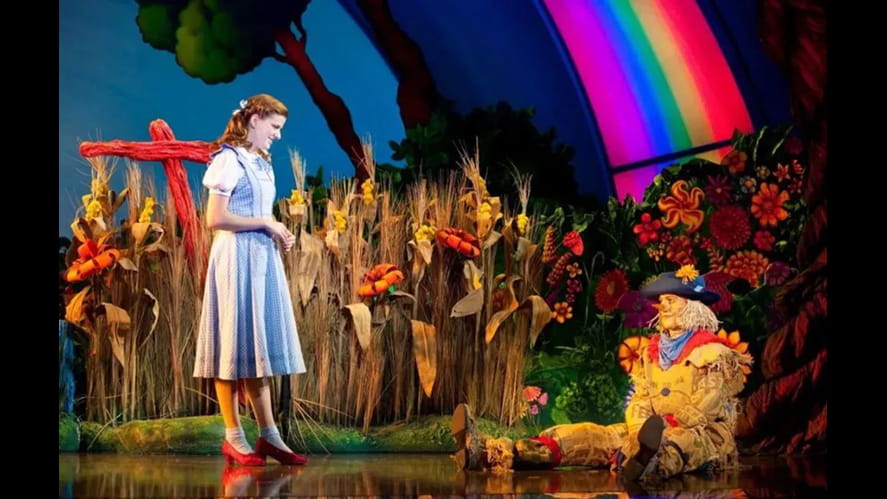
After a tornado whisks her away to the magical land of Oz, young Dorothy Gale teams up with a Scarecrow, a Tin Woodsman and a Cowardly Lion to find the mighty Wizard of Oz, who can send her home. Along the way, they must avoid the clutches of the Wicked Witch of the West, who is trying to steal the mysterious magic slippers that once belonged to her evil sister... but are now on Dorothy's feet. Dorothy eventually learns just how magical friendship can be and how wonderful it can feel to go home again.
Theater is more than just memorizing lines, it is a study in problem-solving, collaboration, creativity, critical thinking and, of course, stage presence! In DDC's three-week music program, students will learn the basics of voice, dancing, memorization techniques, and characterization. Teamwork is essential to theater; children learn that there are “no small parts” and that each individual makes valuable contributions to the end production. More than that, they will learn how to design and construct physical and virtual scenery, the engineering of lighting design, the importance of timing in choreography, the fun of costume creation and how to project their voices to the back of a theater. At the end of the three weeks, students will perform their show for fellow campers, friends, and family!
Fundamental STEM (Grades 1-2)
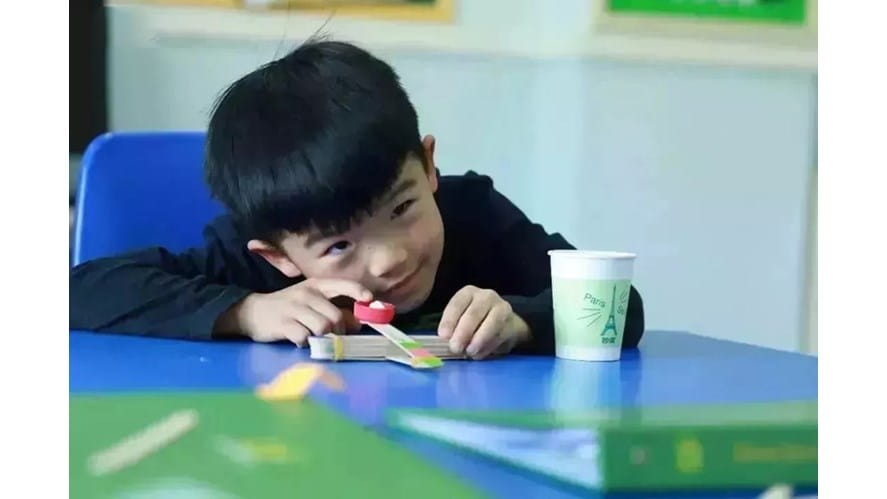
Do you know how scientists think? They ask interesting questions, like, how do our brains work? How can we use magnets to solve problems? What is the engineering design process and how can I use it in my life? How can I learn to code and apply it to my life? —and then they go in search of the answers! These and other questions will be explored in hands-on, engaging activities and experiments for students. As students actively engage in with the subjects they study through experimentation, observation, and construction, they will learn how to think, act, and work like scientists and engineers in an exciting introduction to a wonderful world of discovery!
This course's focus will be on concepts, like change, patterns or interdependence. These concepts will be applied across the day's explorations and will help demonstrate the interconnections among branches of science (biology, physics, and chemistry), technology, engineering, and mathematics. The core of the course is not just the content, but also the critical and creative thinking skills that are involved in these disciplines in real-life careers. The culminating activity will be a student-designed STEM Museum, a carnival of activities that reflect their learning from each day.
Creative Writing (Grades 2-3)
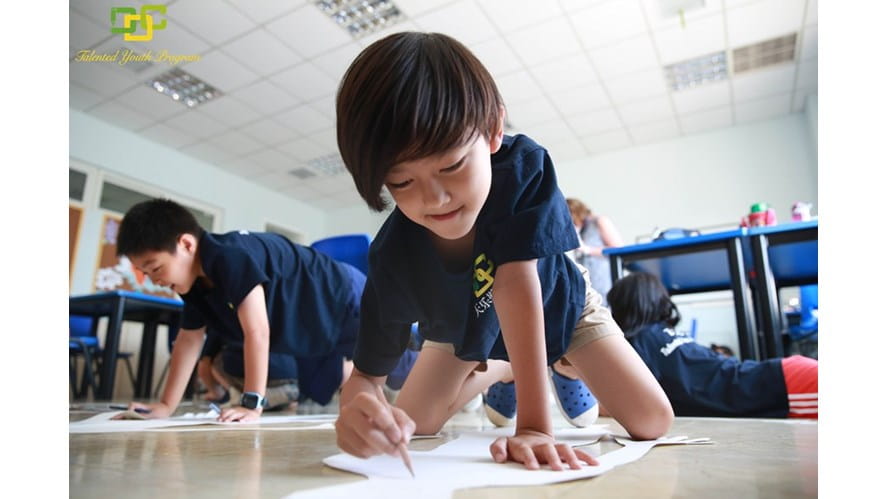
A well-written sentence is the foundation of all good writing. A well-written sentence can also be beautiful. In this course, concepts will be introduced to enable students to write sentences that make sense, communicate ideas, and impart information. Using curriculum materials from famous educational innovator Michael Clay Thompson, students will find it fun to write well. Mr. Thompson is a master at making the sophisticated material accessible to young children. In his program, the study of grammar and sentence structure is presented through the array of quirky animals, birds, insects, a talking tree, and an amazing fish named Mud. From each character, Mud learns a different aspect of sentence structure. They make learning the rules and concepts that are the essential foundation for formal writing assignments enjoyable.
Students will move from sentence to paragraph in an entertaining and comprehensive narrative of a story. The protagonists who help to illustrate the concepts are two engaging ducks who explore the importance of organizing sentences into orderly paragraphs with dialogue, description, comparison, punctuation, and grammar. This course also contains an extensive, structured section of exercises and consists of lessons, each containing in-depth exposition, and assignments.
Science + Math = Art (Grades 3-4)
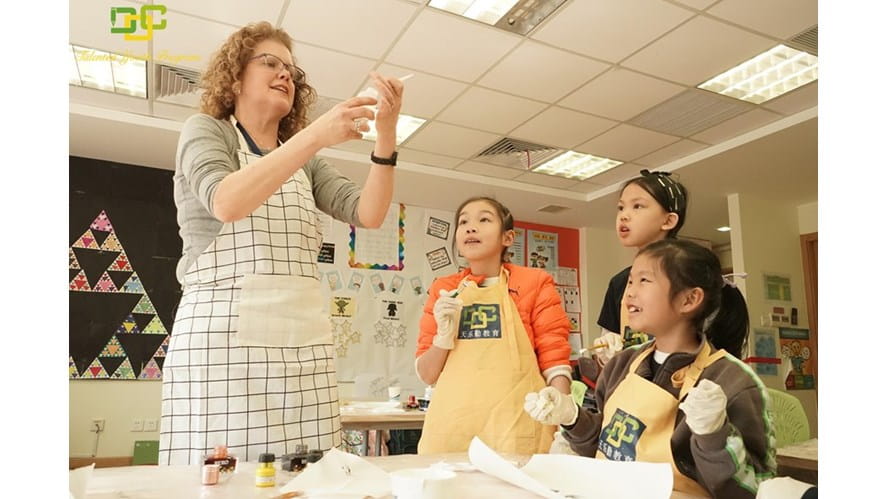
Creating arts with scientific and mathematical properties is as old as time. One of the most famous examples of the interconnection between math, art, and science is the work of Renaissance master Leonardo da Vinci. Known for his famous portrait of Mona Lisa incorporates a mathematical golden section, da Vinci was also a prolific inventor and designed machines that were centuries ahead of their time. Creativity is an essential part of the scientific process as it is to the artistic method. Artists and scientists share a curiosity for the unknown, an appreciation for the beauty of the worlds they explore and an interest in creating something new. Properties of math such as geometry and patterns are the tools artists use to create their masterpieces.
In this course, students will explore properties of geometric shapes, create tessellations, study numerical patterns in nature and demonstrate them in their art. Students will use math tools to create art, build structures based on numerical patterns, and examine the math behind the Golden rectangle. Students will work with the Fibonacci sequence, Pascal's Triangle, and create a 3-dimensional Sierpinski's Triangle, among other activities.
Genetics I (Grades 4-5)
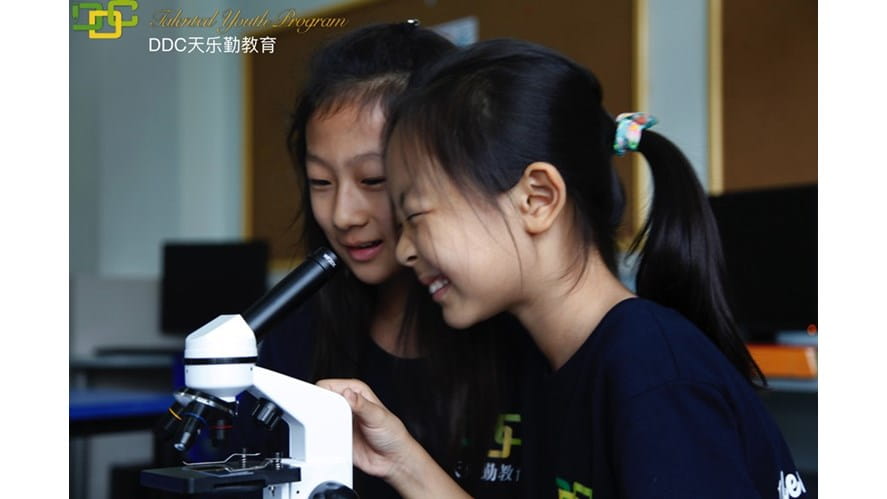
Genetics is one of the "Top Ten Breakthrough Technologies in the World" (MIT, 2017), which will profoundly influence the future development of humankind. Students will learn the foundation that creates the structure of genetics, including atoms, molecules, elements, and compounds. Students will explore the internal structure and function of DNA and RNA using the LEGO tools designed by MIT, and they will also study the mechanism of gene mutation and how a gene mutation is repaired.
Do you want to know the working mechanism of zebrafish heart and blood flow under professional high magnification microscope? DDC teachers will use zebrafish, which is widely used in many fields such as genetics, immunity, and cancer, for students to observe how zebrafish grows from one fertilized egg into an adult fish during a week.
SeaGlide (Grades 5-6)
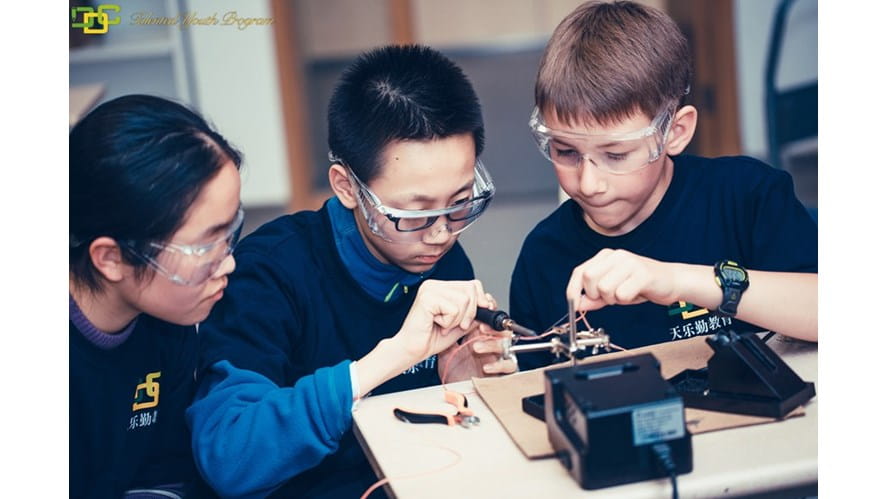
The core curriculum for SeaGlide was jointly designed and developed by MIT and United States Naval Academy as a hands-on experience in principles of physics, engineering, and computer programming. The centerpiece of the unit is the construction of a SeaGlide. A SeaGlide is a miniature non-tethered underwater with no propeller and low energy consumption. It moves by changing its buoyancy, often by taking in or expelling water. This change in buoyancy causes the glider to rise and sink in the water. As the glider travels up and down, its wings generate lift, which propels the glider forward.
Using Computer-Aided Design (CAD), students will design, build and launch their own SeaGlide, and in the process, they will learn how to control the buoyancy and speed of the SeaGlide using scientific principles of buoyancy, gravity, acceleration, and deceleration, lift and drag. They will learn engineering and electronics, too! In order to steer their robot, they use soldering skills to build and program a circuit system on an Arduino board. This course covers the fundamentals of science, including bionics, buoyancy, gravity, dynamics, electronic engineering, and programming, etc.
Mock Trials (Grades 6-7)

The legal system is complex, so how can rules and skills of trial law be taught to young children—through stories, of course! Using the familiar territory of childhood stories, students learn the complexities of the judicial system and court trial presentations. Students will also discuss: Is Goldilocks into the bear's house legal? Does Rumpelstiltskin have the right to sue her for the queen's gold? What will the verdicts be? Guilty or Not Guilty? Students will learn about the government and judicial system, simulate the court review process, and analyze the relationship between law and citizenship and literacy through careful reading, writing, and listening.
Through participation in literature-based mock trials, students will:
Upper SSAT Preparation(Verbal and Writing)(Grades 7-9)
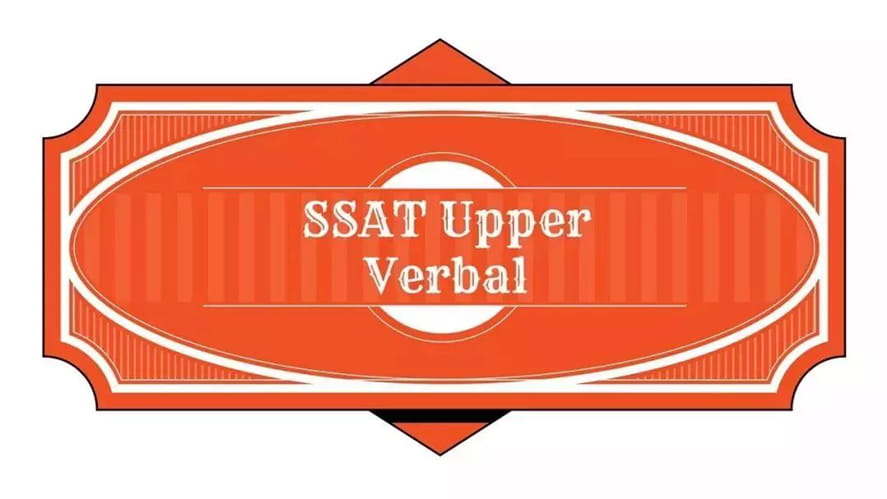
Qualified Experienced Teacher will help students to excel in the areas of the verbal and writing of upper level SSAT; In the verbal section, the objective is to enhance the students’ strength on the aspects of vocabulary, verbal reasoning, and ability to relate ideas logically; On the writing part, the teacher will focus on how to help student to prepare high quality creative writing and essay-type writing with limited time frame.
Students will experiment with imagery and language, tone and mood, and a variety of structures. In addition to daily readings, informal writing assignments, and regular workshops, students will complete several major writing projects. They will gain a clearer sense of the skills and practices of successful writers and greater knowledge of their own strengths as authors. In addition, they will leave the course with critical-reading skills that transcend disciplines and will help them in future coursework. This program is not just help student to achieve their goals on standardized tests, but also help them to acquire the academic skills that are necessary to excel in their future studies.
Schedule 2019.6.24 - 2019.7.12 (3 weeks excluding Saturday & Sunday) |
|
|---|---|
|
G1-2 |
Fairy Tales and STEM |
|
G2-3 |
Digital Storytelling |
|
G3-4 |
Kinetic Sculpture |
|
G4-5 |
Rocketry |
|
G4-5 |
Artistic Ways of Knowing |
|
G5-6 |
Academic Writing & Vocabulary |
|
G6-7 |
Genetics II |
|
G7-9 |
AMC 8/10 |
|
G2-9 |
The Wizard of Oz |
|
|
Schedule 2019.7.15 - 2019.8.2 (3 weeks excluding Saturday & Sunday) |
|
|---|---|
|
G1-2 |
Fundamental STEM |
|
G2-3 |
Creative Writing |
|
G3-4 |
Science + Math = Art |
|
G4-5 |
Genetics I |
|
G5-6 |
SeaGlide |
|
G6-7 |
Mock Trials |
|
G7-9 |
Upper SSAT preparation (Verbal and Writing) |
|
|
MAP Testing |
|||
|---|---|---|---|
|
Date |
Location |
Time |
Subject |
|
March 3 |
BSB Shunyi |
14:00-16:30 |
Science Mathematics |
|
Reading Language Usage |
|||
|
March 23 |
BSB Shunyi |
09:00-11:30 |
Science Mathematics |
|
Reading Language Usage |
|||
|
April 20 |
BSB Shunyi |
09:00-11:30 |
Science Mathematics |
|
Reading Language Usage |
|||
|
April 28 |
BSB Shunyi |
14:00-16:30 |
Science Mathematics |
|
Reading Language Usage |
|||
|
May 25 |
BSB Shunyi |
14:00-16:30 |
Science Mathematics |
|
Reading Language Usage |
|||
|
June 8 |
BSB Shunyi |
09:00-11:30 |
Science Mathematics |
|
Reading Language Usage |
|||
Tuition |
|
|---|---|
|
DDC 2019 Summer Talented Youth Program Charging Policy |
|
|
Tuition |
|
|
Discount |
1. A 10 % early bird discount on the tuition for those who complete the registration and payment before Jan. 31st, 2019. |
|
2. RMB500 discount of the tuition/person for Three candidates and above who register together |
|
|
3. RMB1000 discount for DDC returning students |
|
|
Note |
|
Refund Policy |
||
|---|---|---|
|
Refund Policy |
> 31 Days |
100% of your payment will be refunded |
|
16-30 Days |
80% of your payment will be refunded |
|
|
8-15 Days |
50% of your payment will be refunded |
|
|
4-7 Days |
20% of your payment will be refunded |
|
|
< 3 Days |
Not refundable for cancellation due to personal reasons |
|
|
Note: |
||
Ming: 18510387517
Lilia: 18601008488
T: 400--8880382